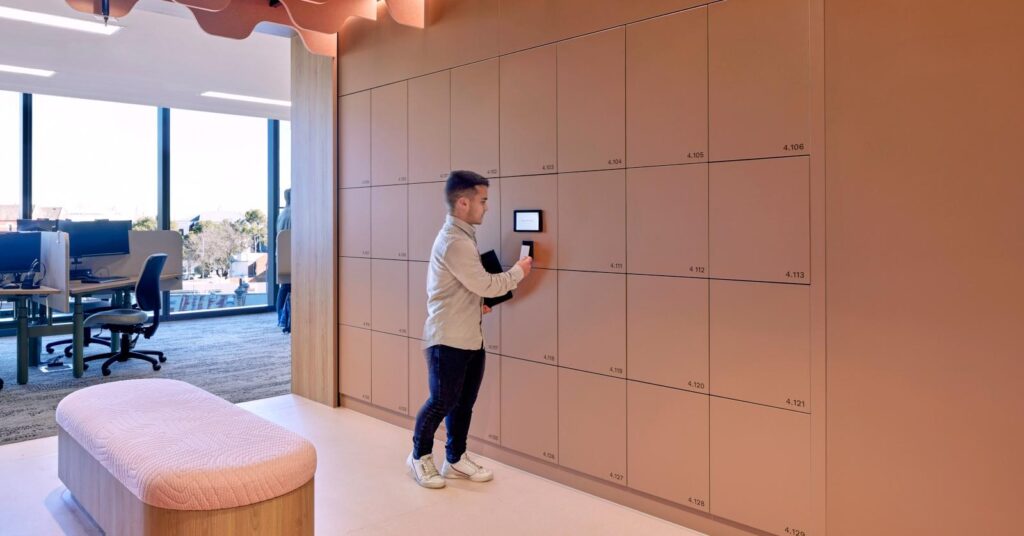Businesses are continually seeking innovative solutions to streamline their operations and enhance customer satisfaction, especially in retail and logistics. One such innovation gaining significant traction is the use of smart lockers for managing product returns. This article delves into the reasons behind this trend, exploring the various benefits and impacts of smart lockers in the business world.
Simplifies the Returns Process
The first and foremost advantage of smart lockers is the simplification of the returns process. Traditionally, product returns have been a cumbersome experience for both customers and businesses. Customers often face long wait times, complicated return policies, and the inconvenience of shipping items back. For businesses, managing returns involves significant logistical challenges and costs. Smart lockers revolutionize this process by offering a seamless, user-friendly solution.
By placing drop box parcel lockers in accessible locations, businesses enable customers to return products with ease. These lockers are designed to be intuitive, allowing customers to drop off their items without needing assistance. This self-service approach not only enhances customer experience but also reduces the workload on staff, allowing them to focus on other critical aspects of the business. Additionally, smart lockers can be integrated with a company’s return system, streamlining the tracking and processing of returned items.
Enhances Security and Accountability
Another key benefit of using smart lockers for returns is the enhanced security and accountability they provide. When customers return items using traditional methods, there’s always a risk of packages being lost or damaged, which can lead to disputes and dissatisfaction. Smart lockers mitigate these risks significantly.
These lockers are equipped with secure, automated systems that track and record every transaction. When a customer places an item in a locker, the system logs the date, time, and details of the return. This data is invaluable for businesses, ensuring a transparent and traceable return process. It not only builds trust with customers, who are assured their returns are safely handled, but also aids businesses in monitoring and managing their inventory more effectively. The reduction in lost or misplaced items results in cost savings and a smoother operational flow.
Reduces Operational Costs
A major advantage of smart lockers is their ability to reduce operational costs associated with the returns process. Traditional return methods often involve significant expenses in logistics, labor, and handling. Smart lockers, however, streamline these aspects, leading to considerable cost savings for businesses.
By automating the returns process, smart lockers minimize the need for manual handling and processing of returns. This automation translates to fewer employees needed for managing returns, thereby reducing labor costs. Moreover, the consolidation of returns in a single, secure location cuts down on transportation and logistics expenses. Businesses can schedule bulk pickups from these lockers, which is more efficient and cost-effective than handling individual returns. Additionally, the quick processing of returns through smart lockers can lead to a faster turnaround of inventory, thus reducing holding costs. This cost-effectiveness is a compelling reason for businesses to adopt smart locker systems to foster their growth.
Improves Customer Experience and Satisfaction
In today’s competitive market, customer experience is paramount. Smart lockers significantly contribute to enhancing this aspect, especially in the returns process, a traditionally frustrating part of shopping. By using smart lockers, businesses offer a more convenient, efficient, and user-friendly return experience, which directly impacts customer satisfaction and loyalty.
Customers appreciate the flexibility and convenience of being able to return items at any time, without the need to interact with store staff or adhere to store hours. This 24/7 accessibility is particularly beneficial for customers with busy schedules. Additionally, the quick and easy process of using a smart locker – often just scanning a code and placing the item in the locker – removes the hassle typically associated with returns.
Furthermore, the immediate acknowledgement and processing of returns via smart lockers provide customers with peace of mind, knowing their return has been securely received and is being processed. This transparency and efficiency can significantly enhance the customer’s perception of a brand, encouraging repeat business and fostering a positive reputation. Thus, the adoption of smart lockers is not just a logistical decision but a strategic move to improve overall customer experience.
Facilitating Sustainable Business Practices
The adoption of smart lockers aligns well with the growing emphasis on sustainability in business operations. These systems play a crucial role in promoting environmentally friendly practices in the area of product returns. By reducing the need for individual packaging and transportation for each return, smart lockers contribute to a significant decrease in carbon footprint associated with reverse logistics.
Additionally, centralized returns via smart lockers mean fewer delivery vehicles on the road, leading to lower emissions. This approach not only aligns with corporate social responsibility goals but also resonates with increasingly environmentally conscious consumers who prefer to engage with brands that demonstrate a commitment to sustainability.






